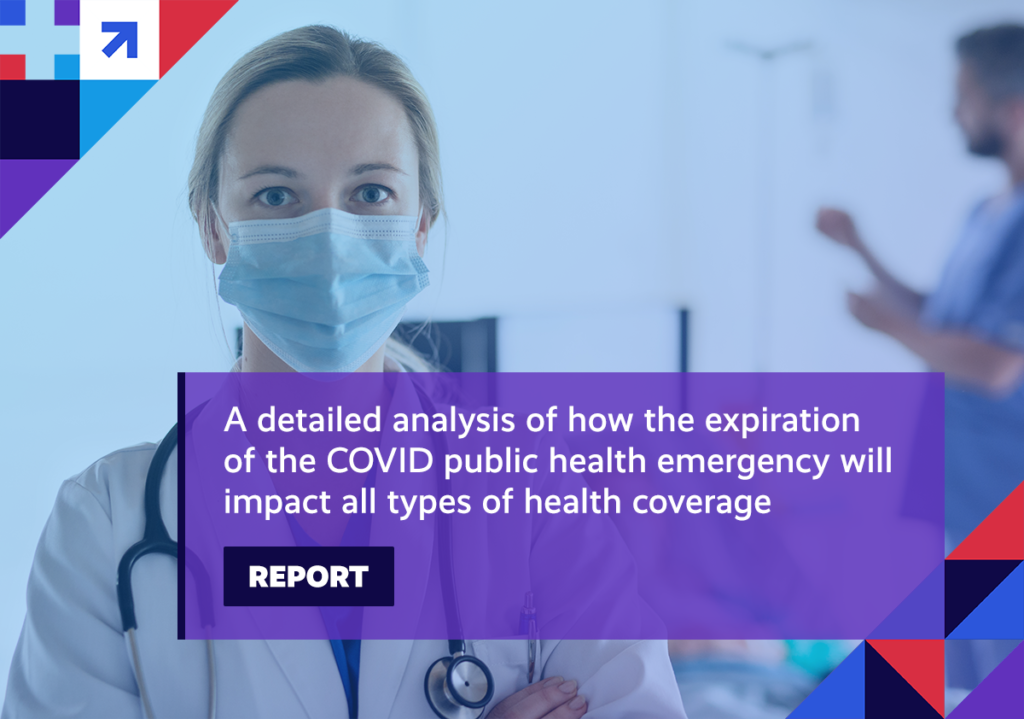A quick roundup of the issues driving the healthcare reform conversation.
Item of the Week

Week in Review
HOSPITAL CONSOLIDATION A new bipartisan proposal takes aim at hospital consolidation.
Quick takeaway: Last week, Reps. Victoria Spartz (R-Indiana) and Pramila Jayapal (D-Washington) introduced a bill targeting the mergers and acquisitions remaking the hospital industry. The bipartisan bill, named the “Stop Anticompetitive Healthcare Act,” would expand the Federal Trade Commission’s (FTC) enforcement ability to take action against anti-competitive conduct by nonprofit hospitals and other hospital service organizations.
Further context: The proposal builds on legislative action undertaken by Rep. Spartz earlier this year focused on hospital competition, costs, and value. Included in that package was a bill addressing “dishonest billing” in which providers markup prices for their services by upcoding them as taking place in a hospital setting.
What it means: All signs point to lawmakers turning their attention to what has become the single largest driver of healthcare spending in the country: Hospitals.

HOSPITAL FEES For cancer patients, hospital parking fees add insult to injury.
Quick takeaway: Despite the anxiety and strain that comes with multiple consultations and follow-ups, oncology patients also find themselves having to deal with paying for parking at hospitals, which, according to a new paper, can actually impact their financial well-being, particularly for those patients having to make frequent visits to these facilities for treatments like chemotherapy and radiation.
Further context: According to research published in the Journal of Medical Imaging and Radiation Sciences, these parking fees contribute to the financial toxicity that patients incur while receiving oncology treatments.
And, it’s not just the patients being saddled with this burden. For people visiting loved ones spending weeks at a time in a hospital, these costs can add up to the thousands.
What it means: While this latest analysis draws further attention to the issue of parking fees, it only adds to the narrative surrounding murky hospital pricing.
PRIVATE EQUITY The majority of healthcare companies experiencing financial stress are owned by private equity.
Quick takeaway: In perhaps the most stark illustration of the toll that these interests have taken on the sector, a new report from Moody’s Investor Service shows that nearly 90 percent of healthcare companies deemed to be under financial stress are owned by private equity firms.
Further context: Attracted by the industry’s relative historical financial stability, aggressive investment in healthcare companies, including physician practices, emergency services, and anesthesiology, has left the sector exposed, leading to broad turbulence throughout the industry, which has already been left vulnerable as a result of private equity’s practice of loading these companies with debt, making them less resilient to challenges like the ongoing COVID public health crisis, inflation, and an increasingly disruptive legislative and regulatory operating environment.
What it means: Evidence continues to mount, underscoring the negative toll that the onslaught of private equity interests have exacted on our healthcare model. But, having found profitable success in the more lucrative corners of the system, investors have started to explore the more hidden niches.
SURPRISE MEDICAL BILLING Stakeholders urge regulators to stand firm in their implementation of the “No Surprises Act” (NSA).
Quick takeaway: Nearly 60 organizations representing employers, patients, consumers, and unions, sent a letter last week to the Departments of Health and Human Services (HHS), Labor, and the Treasury, urging these agencies to remain steadfast in their commitment to protecting consumers from the surprise medical bills that can result when patients – through no fault of their own – receive care from providers outside their insurance network. These surprise medical bills often result from emergency care or from care delivered by out of network specialists, such as radiologists or anesthesiologists.
Further context: Opponents continue to challenge the NSA in court, alleging that the rules unfairly disadvantage providers in the independent dispute resolution (IDR) process. However, a growing body of research points to private equity-backed providers abusing the IDR process and intentionally over-filing claims, driving up costs for consumers and the healthcare system, writ large.
What it means: Through the first nine months of the year, analysts estimate that 9 million surprise medical bills have been prevented from blindsiding consumers thanks to the NSA. Not only that, according to a recent nonpartisan analysis from the Congressional Budget Office (CBO), the NSA is projected to save the federal government $17 billion over the next decade. Further, as a result of these protections, most affected markets would actually see premium reductions in most years.

Spotlight

| You can keep up with the latest by following the Health Action Network on Twitter and by liking us on Facebook. And, be sure to check us out on LinkedIn, too. As always, let us know if there’s something you’d like to see covered in a future newsletter. |
